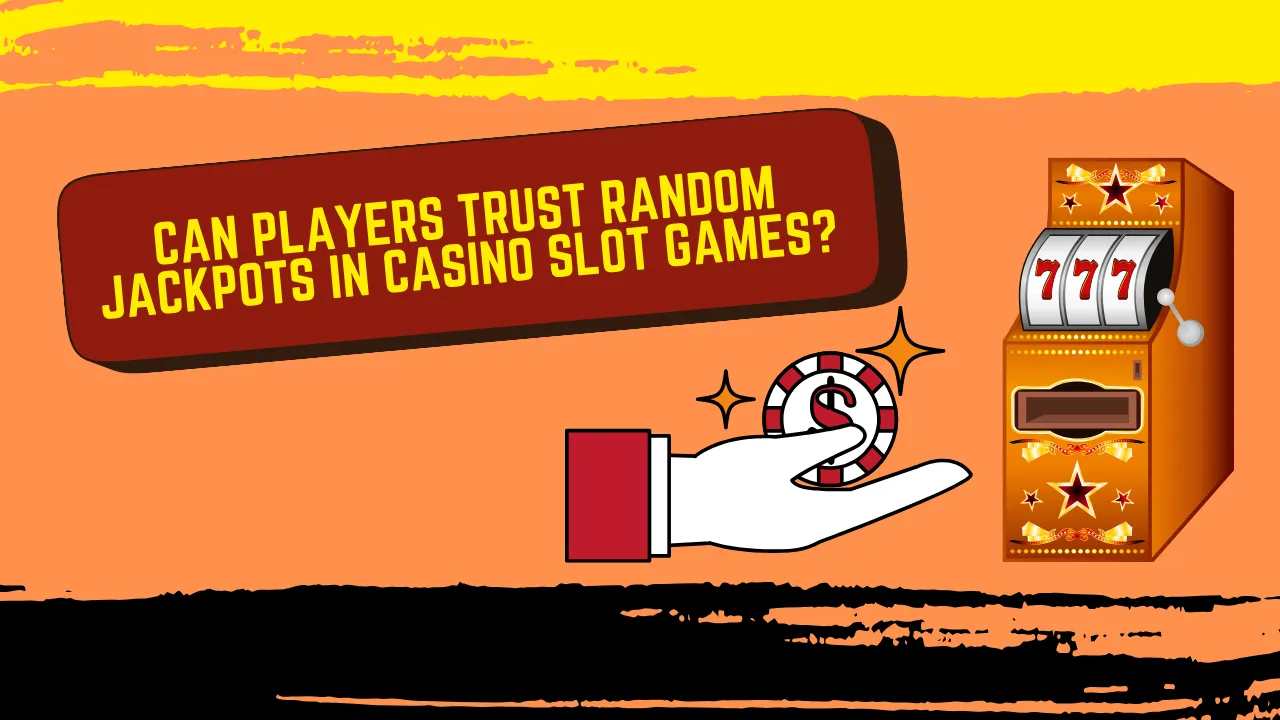Slot machines are often at the heart of any casino, both online and offline. While traditional slots have always drawn crowds with their colorful designs and simple gameplay, modern casino slot games go a step further by offering random jackpots. These are sudden, unplanned payouts that can strike any spin, regardless of stake size or combination. But this raises a big question for many players: can you really trust these random jackpots?
The answer lies in understanding how slot machines work, how random number generators (RNGs) operate, and how casinos maintain fairness. As someone who’s researched casino gaming trends and observed player experiences firsthand, I believe the conversation about trust in random jackpots is more relevant than ever.
How Random Jackpots Are Designed
To appreciate whether these jackpots can be trusted, it’s important to know how they’re created. Slot machines run on Random Number Generators (RNGs), which are algorithms designed to ensure that every spin is independent and unpredictable. RNGs operate continuously, producing thousands of number combinations every second, even when no one is playing.
When you press the spin button, the RNG stops on a number combination that corresponds to the outcome shown on the reels. Random jackpots are coded into this system to trigger unpredictably, meaning you don’t need a specific symbol combination to win — it could happen at any time.
This unpredictability is both the allure and the skepticism. Some players find it thrilling, while others wonder if casinos manipulate the system. In reality, reputable casinos subject their software to strict testing and audits to ensure fairness. Licensing authorities also enforce transparency standards, requiring casinos to prove their RNGs are unbiased.
For players who enjoy exploring digital platforms, the discussion about randomness in slots often overlaps with other popular games like poker. It’s no surprise that those who frequent best online poker sites uk also take a keen interest in whether slot jackpots are trustworthy. Both experiences depend heavily on the integrity of the platform, making reputation and regulation critical.
Why Casinos Offer Random Jackpots
Casinos don’t introduce random jackpots simply as a gimmick. These features serve multiple purposes, both for the house and the players.
First, they add excitement. Players know that even a modest bet could result in a life-changing prize, and that possibility keeps them engaged longer. Unlike fixed jackpots that only trigger under specific conditions, random jackpots ensure that everyone has a chance, regardless of betting size.
Second, they foster loyalty. Casinos offering these jackpots often become destinations of choice for thrill-seekers. The unpredictability enhances the entertainment value, encouraging players to return for more chances at sudden wins.
Finally, random jackpots create a competitive edge. In today’s crowded online gaming market, casinos need features that differentiate them. Jackpots that can strike at any moment are powerful marketing tools that help operators stand out.
The Role of Regulation and Fair Play
Trust is central to the gambling experience. Without it, players would quickly walk away. That’s why regulation plays such a vital role in ensuring the fairness of random jackpots.
Regulatory bodies like the UK Gambling Commission or Malta Gaming Authority require casinos to submit their RNGs for independent testing. Auditing firms such as eCOGRA or iTech Labs verify that the results are genuinely random and not skewed in the house’s favor.
For players, this means choosing licensed casinos is essential. A random jackpot in a regulated casino is far more trustworthy than one offered by an unlicensed operator. While the house always retains its mathematical advantage in the long run, the fairness of individual spins and jackpot triggers is protected by oversight.
Common Misconceptions About Random Jackpots
One of the biggest misconceptions is that casinos can “switch on” or “switch off” jackpots at will. In regulated environments, this simply isn’t true. Once an RNG is coded and approved, the casino itself has no control over when a jackpot triggers.
Another myth is that playing longer guarantees a jackpot. Random jackpots, by definition, can occur at any time. A newcomer spinning once has the same odds of triggering it as someone who has been playing for hours. While extended play increases the number of opportunities, it doesn’t improve the odds of hitting a jackpot on any single spin.
Finally, some players think higher bets directly increase their chances of winning a random jackpot. In most cases, this isn’t true either. Unlike progressive jackpots tied to bet size, random jackpots are programmed to strike without reference to wager amount. This is what makes them appealing — even low-stake players stand a chance.
The Psychological Effect on Players
Trust in random jackpots isn’t just about fairness; it’s also about perception. Human psychology plays a huge role in gambling behavior. The element of surprise, combined with the possibility of sudden reward, keeps dopamine levels high.
Casinos leverage this psychology by designing visual and audio cues around jackpots. The flashing lights, celebratory sounds, and winner announcements are all crafted to amplify the thrill and maintain engagement. While these don’t alter the randomness of the jackpot itself, they significantly shape how players perceive their chances and experiences.
Understanding this psychology can help players approach games with greater awareness, appreciating the entertainment while staying mindful of responsible play.
Responsible Gambling and Player Protection
While random jackpots create excitement, they can also pose risks if players chase wins without control. This is where responsible gambling measures come into play. Reputable casinos integrate features such as spending limits, self-exclusion tools, and reality checks to ensure players don’t lose track of time or money.
Education is also crucial. Players should be aware that random jackpots are not guaranteed outcomes, but rare events programmed within fair systems. Approaching them as entertainment, rather than income opportunities, helps set realistic expectations.
Casinos that prioritize player wellbeing by promoting these tools are generally more trustworthy. They demonstrate that fairness goes beyond RNG audits and extends to protecting the people who engage with their platforms.
Are Random Jackpots Worth Chasing?
So, should players actively chase random jackpots? The answer depends on perspective. If your goal is entertainment, then yes — random jackpots enhance the thrill of slot games and add extra layers of excitement. They make every spin meaningful, since the jackpot could trigger at any moment.
However, if your objective is consistent profit, then random jackpots should not be your focus. Like all casino games, slots are built with a house edge, and jackpots are rare by design. The best approach is to see them as bonuses, not expectations.
Ultimately, trust comes from understanding. Players who recognize how RNGs work, who choose licensed casinos, and who embrace responsible play can fully enjoy the fun of random jackpots without undue skepticism.
Conclusion
Random jackpots in slot games may sound too good to be true, but when offered in regulated casinos, they are as fair as any other feature of modern gambling. Audited RNGs ensure integrity, while oversight from gaming authorities protects players from manipulation.
The real key lies in choosing platforms with strong reputations and licenses. Once that’s in place, random jackpots can be trusted as legitimate, albeit rare, rewards that elevate the thrill of casino play.
For players, the question isn’t whether random jackpots can be trusted — it’s whether they can be enjoyed responsibly. With the right mindset, they transform ordinary slot sessions into extraordinary experiences, making them one of the most exciting innovations in the gambling world today.








